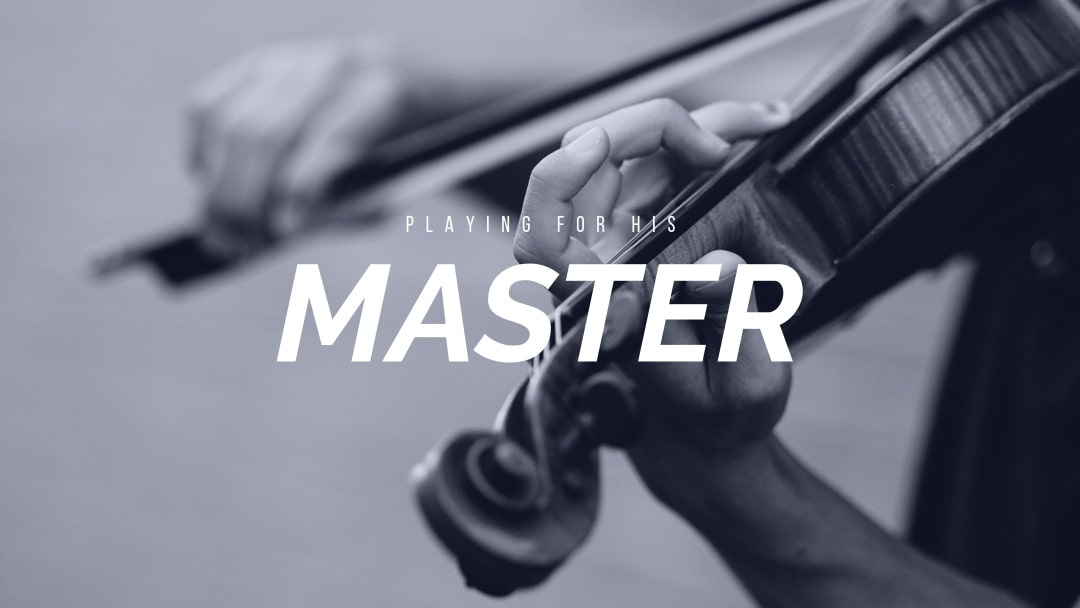A story is told of a young violinist who lived in London many years ago. He was a superb musician. He loved his music and enjoyed playing before small groups of people in the homes of friends.
But he was deathly afraid of large crowds, so he avoided giving concerts. The thought of giving a public performance in a concert hall absolutely terrified him.
The London music establishment was very critical of this young violinist. He was violating all the accepted protocols. According to the critics, excellent musicians were supposed to give public concerts in packed concert halls. In time, the criticism grew so intense that the young violinist relented; even though it scared him terribly, he agreed to give one major concert.
The largest concert hall in London was secured, and when the evening came, the hall was filled. People were excited to hear this prodigy. So were the critics, who filled the first three rows, pad and pen ready, eager to rake him over the coals.
The young violinist came onto the stage and sat alone on a stool. He put his violin under his chin and played for an hour and a half. No music in front of him, no orchestra behind him, no breaks-just an hour and a half of absolutely beautiful violin music.
After ten minutes or so, many critics put down their pads and listened, like the rest. They too were enraptured by the music of this young virtuoso. After the performance, the crowd rose to its feet and began applauding wildly-and they wouldn’t stop. But the young violinist didn’t acknowledge the applause. He just peered out into the audience as if he were looking for something or someone. Finally he found what he was looking for. Relief came over his face, and he began to acknowledge the cheers.
After the concert, the critics met the young violinist backstage. “It was just as everyone had anticipated,” they said. “You were wonderful. But one question: Why did it take you so long to acknowledge the applause of the audience?”
The young violinist took a deep breath and answered, “You know I was really afraid of playing here. Yet this was something I knew I needed to do. Tonight, just before I came on stage, I received word that my master teacher was to be in the audience. Throughout the concert, I tried to look for him, but I could never find him.
So after I finished playing, I started to look more intently. I was so eager to find my teacher that I couldn’t even hear the applause. I just had to know what he thought of my playing. That was all that mattered. Finally, I found him high in the balcony. He was standing and applauding, with a big smile on his face. After seeing him, I was finally able to relax. I said to myself, ‘If the master is pleased with what I have done, then everything else is okay.'”
Steven C. Roy, What God Thinks When We Fail, InterVarsity Press, 2011.
Don’t Miss
The Latest From Our Blog
Check out articles, featured illustrations, and book reviews on all different topics related to ministry.
New Site Launches Tomorrow!
Watch this Space! Tomorrow (May 29) is the official launch of the new The Pastor's Workshop site! Return to this blog tomorrow morning for a post highlighting the new features and explaining how subscribers can get on and start using the site! Here are some new...
How You Can Prep for Pentecost
This was originally posted on May 12, 2016 on https://huffpost.com Pentecost Came Like Wildfire I'm lying on an ice pack early this morning, doing my back exercises and listening to Pray as You Go, a tool for meditation, with monastery bells, music, and a Bible...
Sacred Spaces: the Church Forests of Ethiopia
Let's Go to Ethiopia! Here’s a fun exercise with a spiritual payoff. Go to Google Maps and view aerial images of the South Gondar zone of Ethiopia. Use this button:When the page loads, you'll see a light brown countryside, mostly farmland. There are thin lines of dark...




